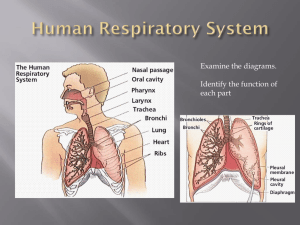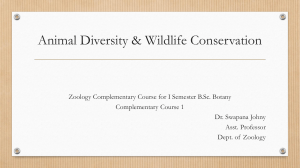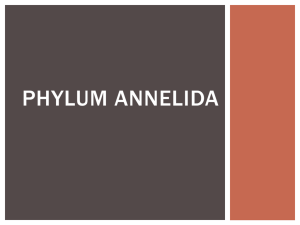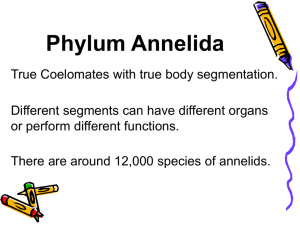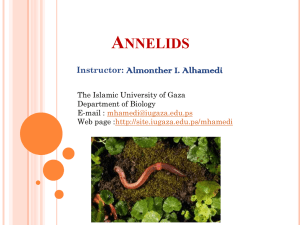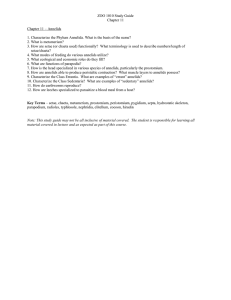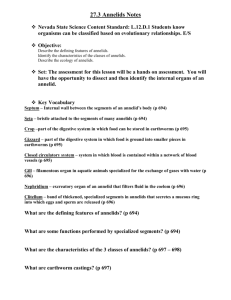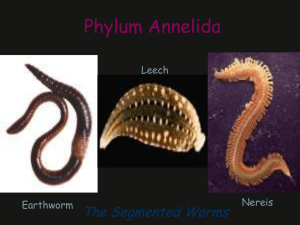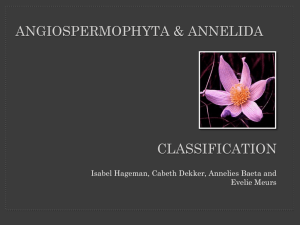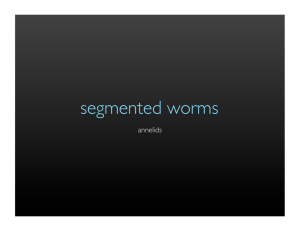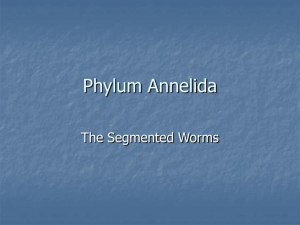Phylum Annelida Study Guide: Worm Anatomy & Classification
advertisement
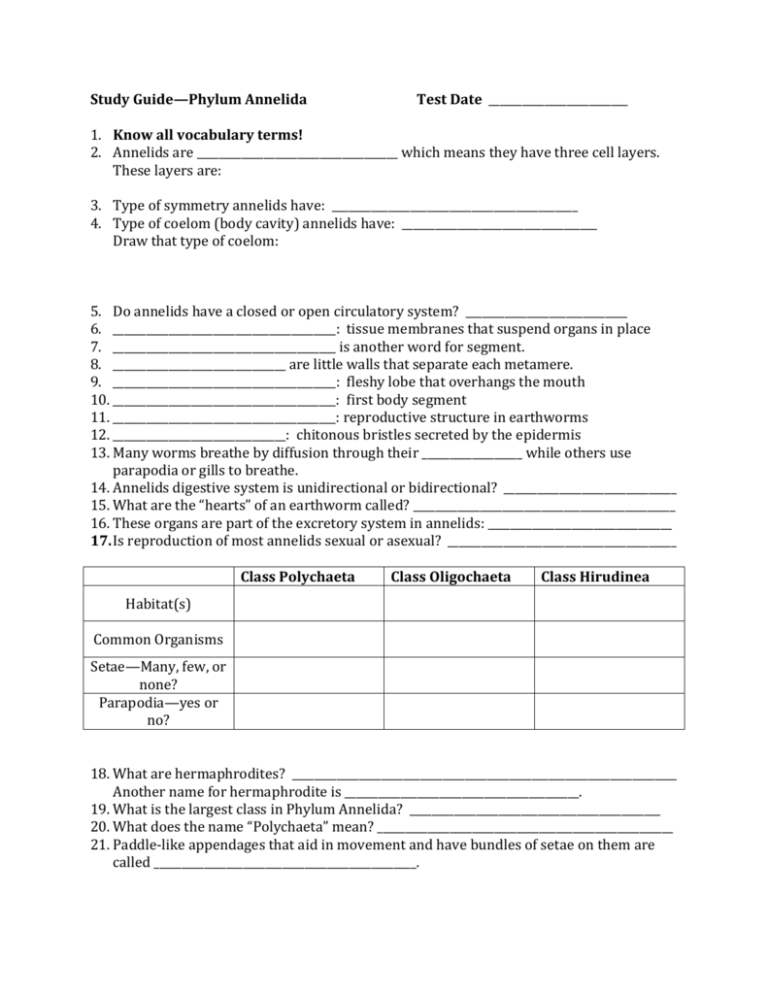
Study Guide—Phylum Annelida Test Date _________________________ 1. Know all vocabulary terms! 2. Annelids are ____________________________________ which means they have three cell layers. These layers are: 3. Type of symmetry annelids have: ____________________________________________ 4. Type of coelom (body cavity) annelids have: ___________________________________ Draw that type of coelom: 5. Do annelids have a closed or open circulatory system? _____________________________ 6. ________________________________________: tissue membranes that suspend organs in place 7. ________________________________________ is another word for segment. 8. _______________________________ are little walls that separate each metamere. 9. ________________________________________: fleshy lobe that overhangs the mouth 10. ________________________________________: first body segment 11. ________________________________________: reproductive structure in earthworms 12. _______________________________: chitonous bristles secreted by the epidermis 13. Many worms breathe by diffusion through their __________________ while others use parapodia or gills to breathe. 14. Annelids digestive system is unidirectional or bidirectional? _______________________________ 15. What are the “hearts” of an earthworm called? _______________________________________________ 16. These organs are part of the excretory system in annelids: _________________________________ 17. Is reproduction of most annelids sexual or asexual? _________________________________________ Class Polychaeta Class Oligochaeta Class Hirudinea Habitat(s) Common Organisms Setae—Many, few, or none? Parapodia—yes or no? 18. What are hermaphrodites? _____________________________________________________________________ Another name for hermaphrodite is __________________________________________. 19. What is the largest class in Phylum Annelida? _____________________________________________ 20. What does the name “Polychaeta” mean? _____________________________________________________ 21. Paddle-like appendages that aid in movement and have bundles of setae on them are called _______________________________________________. 22. The fusion and specialization of many segments into one is called _____________________________________. 23. Which worm in Class Polychaeta is a filter feeder? ______________________________________ 24. Which worm in Class Polychaeta lives in a mutualistic relationship with starfish? _________________________________ What does it do for the starfish? What does the starfish do for it? 25. Class Polychaeta is _______________________________ meaning there is a separate male and separate female. 26. What is the larva of Class Polychaeta called? ______________________________________ 27. What does the name “Oligochaeta” mean? ____________________________________________________ 28. Are earthworms hermaphrodites? _____________ Do they fertilize their own eggs? __________ 29. Describe the reproductive process of earthworms? 30. You will write a short paragraph on what worms feed on and how they are good for the environment. Do they eat dirt? Where do their nutrients come from? Write some key points for your paragraph below: 31. What organisms are in Class Hirudinea? __________________________________________ 32. Do you feel a leech when it attaches to you? Why or why not? 33. Are leeches hermaphrodites? ______________ Do they fertilize their own eggs? _____________ 34. What are leeches used for in the medical field? 35. Label.
